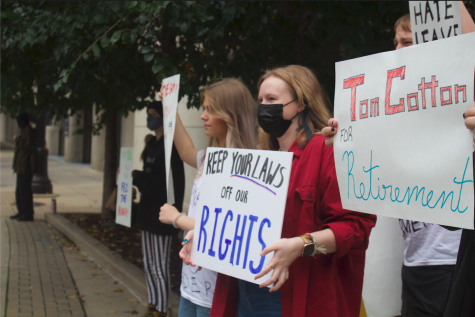Farmer banned from market
Steve Tennes, a former army veteran, who is now a Catholic farmer, has been banned from selling his produce at the East Lansing farmer’s market after denying a same-sex couple to hold a wedding ceremony on his land. Tennes lives in Charlotte, Michigan with his wife and two children, growing and selling produce from his farm, Country Mill Farms.
In the past, Tennes has opened his orchards up to couples for weddings, as the grounds are beautiful, especially with the changing colors of fall. Tennes recently stated, per his beliefs, that he would not allow couples of the same sex to be wed in his orchard or on his property. After hearing this, East Lansing officials banned him from selling his produce at the local farmer’s market by denying his vendor application to sell. As a result, Tennes has received multiple death threats as well as hate-mail regarding his statements.
The current debate on the situation is whether or not it was justified for Tennes to have his vendor application denied due to expressing his beliefs. This ban means that Tennes will not be allowed to sell anything he grows, making it legally impossible for him to make a living. While there are many who disagree with Tennes and believe that banning him from selling his produce was the right thing to do, there are also people who disagree with his beliefs, but support his right to freedom of speech and religion.
These people believe that you should be entitled to your beliefs and still be able to make a living, while others believe that you have to adopt the same beliefs as an establishment to be able to work there. Tennes has been selling at the East Lansing farmer’s market for the past six years and has recently experienced both a drop and a rise in his customers in the past month. When Chimes reached out to the farmer, Tennes did not have any comment.
Calvin senator Kennedy Genzink responded to the political controversy saying that she believes “the orchard has full right to refuse same-sex weddings but the farmer’s market should have the same right to refuse the seller as well.”
Though this is a specific situation, it is not unique. In 2012, another farm in New York faced similar controversy when the owners banned a lesbian couple from hosting their nuptials on the farm. Furthermore, the recent ruling of the Burwell vs. Hobby Lobby Supreme Court case, which ruled that organizations with religious owners are not required to pay for contraception insurance of employees. It further blurs the lines of separation between church and state.







